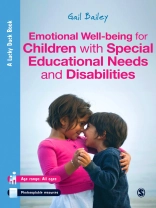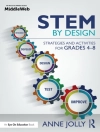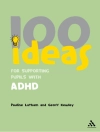This practical guide details the strategies that practitioners can use in their setting to build better outcomes for children with Special Educational Needs (SEN) and disabilities. A clear rationale is outlined that highlights how many factors outside of the child′s control can be addressed to minimise the risk of longer term mental health problems and social exclusion. Case studies, points for practice and questions for reflection are used to explore the principles around working with children with a range of disabilities including:
– ADHD
– Dyslexia
– Visual Impairment
– Autism
Written by an experienced teacher and educational psychologist, this text carefully considers the existing evidence base surrounding emotional well-being and positive psychology before outlining the practical implications for the classroom. This book will guide practitioners in implementing strategies to pro-actively promote emotional well-being for children with SEND in their settings.
Dr. Gail Bailey is a Child Psychology Consultant based in West Wales.
Table des matières
Introduction
PART ONE: A MODEL FOR CLASSROOM PRACTITIONERS
Emotional Well-being and Children and Young People with Special Educational Needs and Disabilities
Emotional Well-Being and Disability
The Evidence Base: The Contribution of Positive Psychology
Implications for Classroom Practice
PART TWO: ASSESSMENT
Independence
Competence
Connectedness
PART THREE: A PLAN OF ACTION
Promoting Independence
Removing Barriers to Engagement and Supporting Capability
Towards Belonging
A Guide for Parents
Summary
A propos de l’auteur
Dr. Gail Bailey is an Educational Psychologist based in Pembrokeshire.












